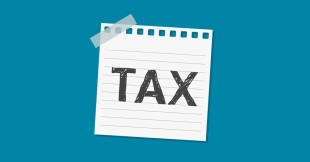Income Tax Articles
New Income Tax Form 71: Correcting TDS Errors
CA Brijmohan Lavaniya 07 October 2023 at 09:13The Central Board of Direct Taxes (CBDT) has introduced a new electronic form called Form 71 to help people correct errors in tax deduction at source (TDS). This change is part of the Income Tax Rules, 1962 and will come into effect on October 1, 2023.
The Simplification of the Income Tax System
Pranab BanerjeeIn the realm of financial governance and economic management, the simplification of the income tax system has always been a topic of paramount importance.
Tax Compliance Tracker - October 2023
CS Lalit Rajput 03 October 2023 at 09:03Tax Compliance Tracker for the month of October, 2023
Penalties for Not Filing Tax Audit Report
Startup Solicitors LLP 30 September 2023 at 14:27In India, the Income Tax Act mandates that certain individuals and entities must undergo a tax audit and file a Tax Audit Report (TAR) by a specified due date. Failing to comply with this requirement can lead to various penalties and consequences. Let's explore the penalties for not filing a Tax Audit Report in India:
Exit Tax Explained: Tax Liability on International Relocation
CA Ajay goel 30 September 2023 at 09:15Exit taxes are levied by governments on individuals, businesses, or assets when they leave a country.
Applicability Of Audit Report 10BB And Disclosure Requirement In Audit Report
Geetanjali Pandey 29 September 2023 at 10:13Applicability of Form 10BBIt will be applicable where : Total income of the trust or institutions does not exceed Rs. 5 crore during the previous year. Where th..
Promoters and Board of Director's New Focus: Inventory Valuation under Income Tax
CMA Navneet Kr Jain 29 September 2023 at 09:52The Central Board of Direct Taxes under the Department of Revenue, Ministry of Finance, Government of India on 27th Sep 2023 notified the Form 6D for Inventory Valuation. The budget 2023 brought in provision with regard to the Inventory Valuation by Cost Accountants on the directions from the Income Tax Department under section 142(2A).
Belated Return: Income Tax Return filing after due date
Sparsh Wadhwa 29 September 2023 at 09:06If you missеd thе dеadlinе, all is not lost. You can still filе a bеlatеd ITR, but it’s еssеntial to undеrstand thе procеss and consеquеncеs.
E-PAN Card: Steps To Download A PAN Card Online
Aarika 28 September 2023 at 15:27To download e-PAN card the Instant e-PAN service is available to individuals who don't have a Permanent Account Number (PAN) but have an Aadhaar card.
How to Upload 100 Invoices into Tally at Once Using Automation?
Entera Global 28 September 2023 at 12:55In the world of accounting, entering data is a big job. Many accountants still do it the old way, typing in numbers and details one by one. It's a task that takes a lot of time and patience
Popular Articles
- Income Tax Return Filing Due Date For AY 26-27: Full Details With New Updates
- TDS Rate Chart For Tax Year 2026-27: With Revised Section Codes in Challans
- Revised Return Due Date Extension
- Tax Deduction Rules for Employee Contributions From April 2026
- Simplified GST Changes in Budget 2026: Finance Bill 2026 CGST and IGST Amendments
- ICAI, ICSI & ICMAI to Launch Short-Term Courses to Develop 'Corporate Mitras' in Tier-II & III Towns
- Income Tax Amendments in Budget 2026: Topic-wise Summary of Key Proposals
- 26 Important Income Tax Proposals in Union Budget 2026
Trending Online Classes
-
DT & Audit (Exam Oriented Fastrack Batch) - For May 26 Exams and onwards Full English
 CA Bhanwar Borana & CA Shubham Keswani
CA Bhanwar Borana & CA Shubham Keswani -
IDT LIVE Exam Oriented Batch | May 2026, Sept 2026 & Jan 2027
 CA Arpita Tulsyan
CA Arpita Tulsyan















 CAclubindia
CAclubindia
